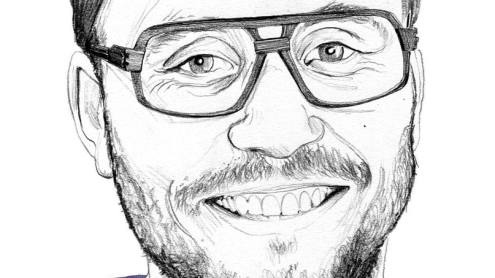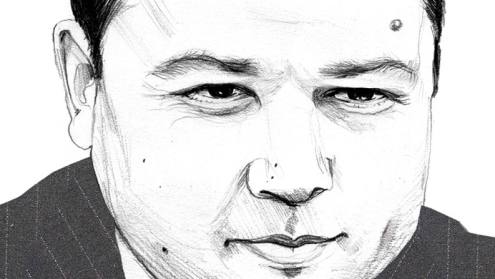Samsung is one of South Korea’s greatest success stories. The company has become a globally recognised brand, thanks in large part to the popularity of its smartphones, and its rise is symbolic of South Korea's own economic development, which has seen it transform from an emerging market into a powerful global player. The country's ascent has been heavily reliant on the success of its conglomerates, known locally as ‘chaebol’, but now there are fears that the country has become too dependent on chaebols such as Samsung.
The latest debates about the role of the chaebol have surfaced at a time when South Korea is faced with the challenge of managing a developed economy after years of playing catch up with other, more developed economies. Chaebol reform was a hot topic in the run-up to the country's presidential election in December 2012, with the issues going to the heart of notions of capitalism and the ideal relationship between business and society.
Samsung, too, is having to adapt to an evolving market. Its main competitor has changed, from Japan-based Sony to US-based Apple, and the stakes have also increased. The pace of technological change means that Samsung must ensure that its flagship product, the smartphone, is constantly being improved and updated.
Mixed feelings
In 2011, Samsung Group and its 156 subsidiaries recorded sales of Won245,400bn ($237bn), accounting for approximately one-fifth of South Korea’s gross domestic product (GDP). Its exports in the year amounted to Won101,700bn, accounting for 17% of the country's total. Moody’s reports that Samsung’s global market share in smartphones increased from 3.7% in 2009 to 30.6% in the first quarter of 2012.
Such success has been both a source of pride and concern for South Koreans. Dr Yun Chang-Hyun, president of the Korea Institute of Finance (KIF), says that on a recent trip to Russia, his tour guide was using a Samsung Galaxy smartphone. “I said ‘thank you for using Samsung’ and she replied ‘thank you for making this great product’,” he says.
This anecdote shows how South Koreans share pride in the company’s success. At the same time, however, the dominance of Samsung and other chaebol is high on the political agenda. “The concentration of power itself can be a source of fear,” says Mr Yun.
Samsung’s advances have coincided with South Korea’s own; its dual achievement of economic development and democracy. ‘Economic democratisation’ was a major theme of the country's pre-election campaigns, along with the issues of the increasing gap between the ‘haves’ and the ‘have nots’, the cost burden of education, and helping small businesses. Discussions regarding economic democratisation centred on realigning the relationship between the chaebol and society.
In theory
In practice, however, economic democratisation is difficult. “If you try to apply democracy to the economy then some things can be in conflict,” says Mr Yun. In a company, for example, one share equals one vote and so with 1000 shares the voting rights would be 1000:1. “We accept this in capitalism," says Mr Yun, "but if we apply that rule to democracy there would be complaints of ‘how come one guy has 1000 times more voting power?’.”
Reforming the chaebol was a major part of the economic democratisation debate. “A lot of macro-economists worry about the dependence of the South Korean economy on Samsung,” says Dr Jang Yong-Suk, an associate professor of public administration at Yonsei University. He points to research that suggests that without Samsung, South Korea’s GDP growth rate would be cut in half.
While the election provided the catalyst for this debate, Mr Jang believes that the discussions were about more than just winning votes. He says that they represent a paradigm shift in South Korea, toward distribution rather than development. “Korea is transforming into a developed country and is now concerned about distribution and welfare, and the next stage of the market economy,” he says. “The debate is more than chaebol bashing; it is more about how to make capitalism sustainable. It is a reform discourse that is going on.”
Giving back
One of the questions being asked in South Korea is whether capitalism and business are for the benefit of society as a whole, or to create profits for shareholders. There is a sentiment that it is time for big businesses, which have benefited from the government’s supportive policies, to somehow ‘give back’ to society.
Samsung has a strong record of corporate social responsibility (CSR). For example, in 2011 Samsung Electronics and its subsidiaries contributed Won293.7bn to South Korean communities, it also donated to arts, culture and social welfare programmes. It also gave Won34.9bn to overseas projects, including IT education programmes and the Amazon Environmental Foundation.
The idea of giving back, however, goes beyond such CSR efforts. When asked to comment on the calls for companies such as Samsung to ‘give back’ to South Korean society, Dr Euh Yoon-Dae, chairman and CEO of KB Financial Group, says: “That is what the chaebol should do.”
Mr Euh says that the Rockefellers in the US and Sweden’s Wallenbergs should be examples for the founding family of Samsung to follow. Aside for being known for their vast wealth and business empires, the Rockefeller and Wallenberg families have also established a legacy of philanthropy. “Maybe within a decade the chaebol will be respected for doing such things,” says Mr Euh.
Keeping it in the family
The rise of South Korea's chaebols has been relatively quick and the trend has been to keep control and wealth within the company's founding families. And with the country heavily influenced by the Chinese ethical and philosophical system of Confucianism, great importance is placed on the notion of father-son loyalty, on the blood line and passing on a legacy to kin. “Blood is very important in Korea,” says Mr Euh.
Even in the case of Hyundai founder Chung Ju-yung, who donated large sums of money to North Korea in the late 1990s, the donation is often interpreted as an act of kinship – of giving to a poorer brother – because Mr Chung himself was originally from North Korea. This could be described as an act of affinity rather than giving for the benefit of society in general.
For Peter Underwood, senior partner at consultancy IRC, the importance of giving is something of which he has first-hand experience. Mr Underwood’s great grandfather, protestant missionary Horace Grant Underwood, first arrived in Korea in 1885, before the country was divided, and the family has remained in the country since. The family name has become legendary in South Korea thanks to the numerous contributions the family have made to the development of its society, by establishing schools and an orphanage, as well as the prestigious Yonsei University.
“Donating to an anonymous beneficiary is not a common idea in Korean culture,” says Mr Underwood. This is not to say that South Koreans are not generous, however. Mr Underwood says that after the US, South Korea sends the most missionaries overseas and the country is home to numerous charities that carry out altruistic work.
Wrong reasons
In the case of high-profile donations by chaebol leaders, however, they are often associated with apologising for misdeeds, says Mr Underwood. For example, at the height of a bribery investigation in 2006, Hyundai apologised for not taking “full social responsibility” and the family of chairman Chung Mong-Koo donated Won1000bn to charity. This came months after Samsung’s similar response to a scandal when chairman Lee Kun-Hee’s family made a donation to 'society' of Won800bn.
Such acts have been in response to negative public sentiment, but now the discussion is focused more on fundamental changes in the relationship between business and society. On the issue of how Samsung can give back to society, KIF's Mr Yun emphasises the importance of the way in which the company does this. “The means is really important,” he says. “Even if everyone agrees it is necessary, [the stakeholders] still need to make a good decision on how to do it. If the company is alive, it can generate profits and pay tax. That is the most important ‘give back’.”
Mr Jang frames the debate in the wider context of the models of capitalism, and how the developed world has experienced a crisis of capitalism since the financial crisis and its associated state bailouts. He points to the concepts outlined by Harvard academics Michael Porter and Mark Kramer in ‘Creating Shared Value – Redefining Capitalism and the Role of the Corporation in Society’. In the 2011 article, they argue that shared value is the next model of capitalism in the post-crisis world, and a concern with societal issues will be the next major transformation in management thinking. Capitalism has been under siege and business has been viewed as the cause of social, environmental and economic problems, they say.
“The solution lies in the principle of shared value, which involves creating economic value in a way that also creates value for society by addressing its needs and challenges. Businesses must reconnect company success with social progress. Shared value is not social responsibility, philanthropy or even sustainability, but a new way to achieve economic success. It is not on the margin of what companies do but at the centre,” the article says.
All of this is easier said than done, and in South Korea, while there are calls to reform the chaebol – so that society as a whole can benefit – there are also fears that any major restructuring could adversely affect the economy.
Inner circle
One of the proposals to reform the chaebol has been to dismantle their complex organisational structure of circular shareholding. For example, as of August 2012, Everland – the theme park and de facto holding company for Samsung Group – owned shares in the insurance company Samsung Life, which owned shares in Samsung Electronics, which owned shares in renewable energy company Samsung SDI, which in turn owned shares in Everland.
Critics of the chaebol argue that through circular investments the founding families are still able to wield considerable power over the group. In the case of Samsung Group, the family’s ownership of the various parts of the structure has been the source of tax probes and investigations.
In May 2012, Reuters reported on a family dispute between Samsung Electronics chairman Lee Kun-hee and his siblings, who were making a claim on his ownership of Samsung Life. Other lawsuits have centred on the transfer of shares in unlisted Everland – a key part of the group – to Mr Lee’s children at prices below market value. In 1996, Lee Jae-yong, Mr Lee’s son, became the largest shareholder of Everland. In December 2012, he also became the vice-chairman of Samsung Electronics, which was interpreted as a move toward his future leadership of the company.
In his book Samsung Electronics, author Tony Michell argues that circular shareholding is a burden of the South Korean system because the founders were unable to consolidate their holdings into a single holding company structure.
Research by Korea Investment and Securities says that no country regulates circular shareholding, and that other companies, such as Toyota and Louis Vuitton, also use it. The research explains that fair trade laws banned cross-shareholding by affiliates in South Korea, but not circular shareholding, and that restructuring the governance of Samsung Group and its 17 circular shareholdings could be a costly exercise. The research, published in August 2012, estimates that Samsung Group would have to dispose of shares worth Won1340bn to dismantle the circular shareholding.
Keeping the wheels turning
While there are calls to transform Samsung’s power structure, there are also fears that any changes to its governance could damage the company. Mr Yun compares such organisations to a bicycle. “It goes and goes, but if it is stopped it falls over,” he says. “A big change in the governance structure can have a bad effect – the whole organisation could be shocked – and have a negative impact on the economy. It is not a good time to try to change the situation.”
The major issue in the governance of the chaebol is the separation of commerce and finance, says Chris Park, vice-president and senior credit officer at Moody’s Investors Service. While the Samsung Group includes financial entities such as Samsung Securities, Samsung Card and Samsung Life, laws have restricted the chaebol from owning stakes in banks. This was another issue raised during the country's pre-election debate, and there is an argument that Samsung Life should not own shares in Samsung Electronics because it is a financial institution.
In a paper on the politics of chaebol reform, academic Lee Sook-Jong describes how modern banks in South Korea were created during the Japanese colonial era and were mostly Japanese-owned. After it was granted independence, the South Korean government took control of the banks, sold them to businesses, but they were nationalised again in the Park Chung-Hee era, which began in 1961.
The chaebol’s ban on banking activities ensured a separation between financial capital and industrial capital, and prevented industry’s dominance of the financial sector. It also ensured that the chaebol, reliant on the state-led financing in these early stages of development, had to follow the government’s policies.
Samsung’s history stretches back to 1938, when founder Lee Byung-Chull started a trading business with Won30,000 during the Japanese occupation. During this period he became one of South Korea’s richest men. Daniel Tudor, in his book Korea: The Impossible Country, writes that when Park Chung-Hee was made president of South Korea, however, Mr Lee was exiled in Japan and was accused of illicitly acquiring his wealth, evading taxes and giving illegal political donations. Mr Lee negotiated his return and reached a deal whereby he would donate his wealth – including ownership of South Korean banks – to the state and use his influence to persuade other industrial leaders to follow the government’s economic plans.
In this deal between the state and industry, the banks played a supporting role, with one observer describing them as the “ATMs of the chaebol”. Such policies enabled the growth of the conglomerates into industrial giants, and now Samsung no longer needs financing from the banking sector.
No big deal
In the current climate, the ban on chaebol owning banks is not a major issue for Samsung. “The separation of banking and commerce is very important. But it is not that important now because no one wants to invest in banks these days,” says Mr Yun.
According to Mr Park, Samsung has strong liquidity and is able to generate its own cash flow. “Its overall dependence on banking and capital markets is very limited,” he says. Moody’s research states that in the first quarter of 2012, Samsung Electronics' balance sheet liquidity amounted to Won26,000,000bn in cash and cash equivalents.
And as an international company, Samsung no longer has a close relationship with South Korea’s banks. “Samsung has relationships with financial institutions all over the world. Samsung does not belong to the Korean financial market,” says Mr Yun. He adds that Samsung Electronics has subsidiaries all over the world and in many ways is an international, rather than a South Korean, company.
At the end of 2011, Samsung Electronics had 221,736 employees, with 54% based overseas. In that year, the company had added 31,626 employees as part of the expansion of production plants in China and south-east Asia.
Left behind
There is a sense that Samsung is an international success story, and that South Korea’s banks have been left behind. As Kim Jin-ho, CEO of Seoul-based SG Private Equity, says, South Korea’s banking industry has been unable to create a brand that is as internationally recognised as Samsung. The reason for this, he says, is that the banking sector has not been viewed as an industry in itself, and its main purpose has been to support the industries that drove the country's export-led economy.
“The government does not regard financial services as an industry,” says Mr Kim, who was formerly CFO of KDB Financial Group between 2009 and 2011.
At one time it looked as though an international banking brand could be created when, in August 2008, Korea Development Bank was in talks to buy a stake of up to 50% in Lehman Brothers. The deal was never agreed, however, and, in light of the subsequent collapse of Lehman Brothers, South Korean public sentiment is wary of banks expanding because of the potential risks. “There is a fear that if something goes wrong with banks, the taxpayer will be left picking up the pieces. But is that not the danger with Samsung? If it goes wrong it will damage the economy,” says Mr Kim.
Such sentiment highlights the South Korean public’s concern with Samsung and the chaebol. And with a new government administration in 2013, no doubt the relationship between big business and society will continue to be major issue for South Korea as the country plans the next chapter of its economic development.












